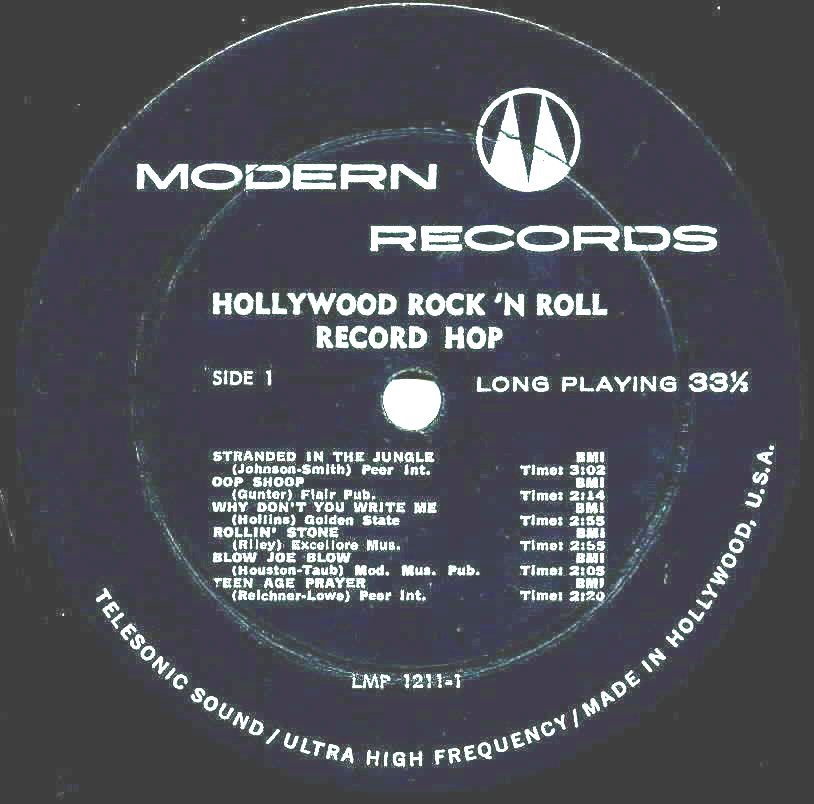 Modern Records Story
Modern Records StoryThe Modern label was formed in 1945 in Los Angeles, California, by Saul and Jules Bihari. Modern
recorded rhythm & blues, country & western, jazz, popular, blues, and gospel. The subsidiary RPM was
formed in 1950 and released blues, jazz, rhythm & blues and rock & roll. The subsidiary Crown was
formed in 1954 and after three years (starting in 1957), was used only for budget priced albums. The
Riviera label subsidiary was a budget label that operated in 1959. The Kent label subsidiary was formed
in 1958 and issued only singles, but the name was used again from 1965 to 1971 for album issues. All of
these labels were very much a family affair, as the President of all the labels was Saul Bihari, his
brothers Jules and Joe served as Vice Presidents, and brother Lester was head of Sales and Promotion.
[Note: This information comes from industry sources and was cited in Galen Gart's book American
Record Label Directory and Dating Guide, 1940-1959. Joe Bihari's daughter recently sent an e-mail
stating Jules was actually President, not Saul, and that Joe Bihari "discovered" their A&R man, Ike (&
Tina) Turner.] At the Modern, RPM and Crown labels, A&R was handled by Joe and Jules Bihari, Maxwell
Davis, Austin McCoy, Jake Porter, Lester Sill and Ike Turner.
In the late '40s and early '50s, Modern/RPM was able to attract many fine blues performers to the labels,
including B.B. King, Roscoe Gordon, Elmore James, Smokey Hogg, Lightnin' Hopkins, Little Willie
Littlefield, Jimmy McCracklin, Jimmy Witherspoon, Pee Wee Crayton and John Lee Hooker. Modern
also leased masters from Sam Phillips in Memphis, and was the first label to release material by the
legendary Howlin' Wolf. A split between the Bihari brothers and Sam Phillips occurred when Phillips
started leasing the Wolf masters to Chess in Chicago.
Modern/RPM was even successful in the rock & roll field, with vocal groups including the Cadets, Marvin
and Johnny, the Jacks, and the Teen Queens, and single artists Jesse Belvin, Etta James, Jimmy
Beasley, Richard Berry, and Shirley Gunter. The biggest hits for the Biharis were an uptempo
instrumental by tenor sax player Joe Houston, titled "Blow, Joe, Blow', the slow group recording by the
Jacks titled "Why Don't You Write Me" in 1955, a novelty number titled "Stranded in the Jungle" in 1956
by the Cadets (a group with the same personnel as the Jacks), a hit by Jesse Belvin with the fine ballad
"Goodnight, My Love" in 1956, and a hit with the amateurishly sung "Eddie My Love" by a girl group
called the Teen Queens, also in 1956.
Modern got into the 33 1/3 album market very early, issuing a series of 10 inch LPs starting in 1950.
Most of the issues in this series are unknown because the company did not list their releases in the
Schwann Long Playing Record Catalogs of the period, a practice that continued thoughout the history of
the company.
The releases in the 12 inch Modern 1200 series and RPM 3000 series were quite high quality releases.
Thick vinyl was used, and liner notes and printed spines were used on the covers. The number of
albums actually released in these two series is a subject of some debate. Crown reissues of 5002
through 5015 actually have Modern issue numbers 1202 to 1215 in the vinyl trail out area, indicating that
these Modern numbers were mastered, but may not have been released except on Crown. Crown
reissues 5001 and 5017 through 5024 actually have RPM issue numbers 3001 through 3009 in the vinyl
trail out areas indicating that these RPM numbers were mastered if not pressed. The following albums
are known to exist for sure: Modern 1201-1211 and RPM 3001 and 3006. RPM album jackets have been
issued with Crown label records inside. Any early Modern or RPM album is very collectable.
Unfortunately for record collectors, these quality releases soon deteriorated when the Biharis started
putting all of their energy into the Crown budget album line in 1957. After the initial 25 or so Crown
album releases (which were reissues of their earlier Modern and RPM albums), the goal of the Crown
line seemed to be "How cheap can you make the record?" The covers were two pieces of thin cardboard
held together with the paper cover, with no liner notes, and no record inner paper or plastic sleeves were
used. Many had only 10 songs rather than the standard 12. The vinyl on these reissues was thin, and
many have manufacturing defects. We have heard that the Biharis even tried to make the vinyl go
farther by mixing sand with the vinyl for filler during the pressing process. Whether this is true is
debatable, but many Crown albums are so poorly manufactured that they may as well have sand on their
surface.
One thing that is known for sure is that they used generic album jackets, and even recycled them. For
this reason, most do not even list the song titles on the back cover. Since the backs of the jackets were
all the same, they printed up a pile of jackets with no front cover, then just pasted a single sheet (slick)
on the front for whatever album they were issuing. If they didn't sell enough of one record and they had
some jackets left over, they just pasted another slick on the front and used the jacket for a different
album.
With the exception of the Crown releases of the earlier Modern and RPM recorded material, the Biharis
hired anonymous studio musicians to record Broadway orchestral music, big band imitations, classical,
children's records, sing-along records, and other drivel. Whenever a new music craze came along, the
Biharis repackaged the earlier albums to capitalize on it. The twist craze generated many albums where
they reissued old material sometimes adding the word "twist" to the song title. If the song was an
instrumental, they just made up a new title that included the word "twist". There were also surf records,
limbo records, and car song records.
The biggest loser in this sorry business — other than the record buying public — was
probably B.B. King, an artist of prodigious talent whose new album releases were subject to the same
shoddy treatment that the rest of the Crown catalog received. Early works by B.B. King generally have
much less value to collectors than they should have because of the poor quality of the album packaging
and record pressings. It's tragic that so much great recorded music by artists like B.B. King, John Lee
Hooker, Pee Wee Crayton, Elmore James, Etta James, Jesse Belvin, Richard Berry, and many others
was so poorly treated.
Another budget label named Riviera was created in 1959, the only albums of note on the label are some
early recordings by Paul Anka [Riviera R0047] and a good compilation of rhythm and blues artists
[Riviera R0052]. Even while using the Crown budget album series, the Biharis revived the Modern label
several times. In the early '60s, it was used for a line of budget stereo albums, and in 1965/6 for releases
by Little Richard and the Ikettes.
A budget label catering to Latin releases was formed in the early 1960s, a sister label to Crown Records
called "Discos Corona," which is "Crown Records" in Spanish.
In the mid-'60s, the company went bankrupt, but a new approach was to use Kent, a label the Biharis
formed in 1958, to issue albums with essentially the same management and the same catalog. Kent
re-released the most successful of the Crown albums, including the B.B. King catalog. The Kent albums
had somewhat better packaging than the Crown albums and did include liner notes and song titles on
the back covers. This trend did not last long, however, because in order to capitalize on the '50s
nostalgia in the early '70s, another budget label, United, was started which released some of the better
Crown and Kent album titles, again with no liner notes.
The following discographies covers the Modern, RPM, Crown, Discos Corona, Riviera, Kent, Custom,
and
United/Superior (United) labels. About the only source for information on these labels is our record
collections and the discographies on the back of the generic Crown and United record jackets. The titles
never appear in either the Schwann catalogs or the Phonolog catalog. Any help on these discographies
would be greatly appreciated.
We would appreciate any additions or corrections to this discography. Just send them to us via e-mail. Both Sides Now
Publications is an information web page. We are not a catalog, nor can we provide the records listed
below. We have no association with Modern Records. Should you be interested in acquiring albums
listed in this discography (which are all out of print), we suggest you see our Frequently Asked Questions page and follow the
instructions found there. This story and discography are copyright 2000, 2002, 2015 by Mike
Callahan.
 On to the Modern Label Discography
On to the Modern Label Discography
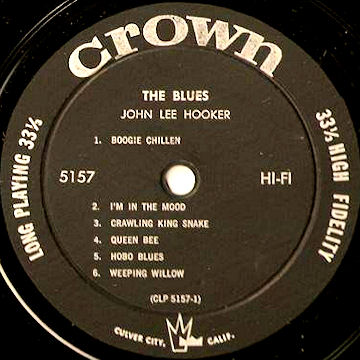 On to the Crown Label Discography
On to the Crown Label Discography  On to the Custom Label Discography
On to the Custom Label Discography 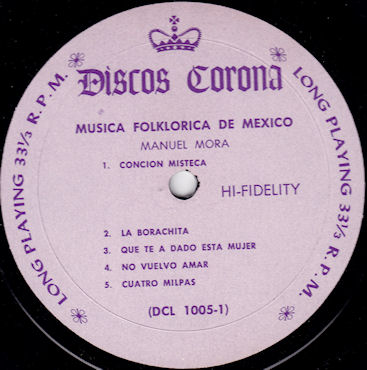 On to the Discos Corona Label Discography
On to the Discos Corona Label Discography
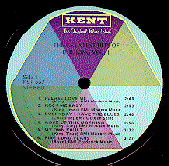 On to the Kent Label Discography
On to the Kent Label Discography 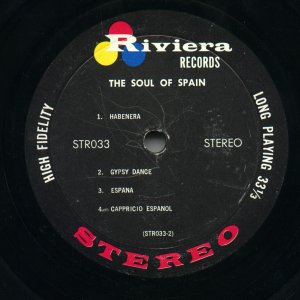 On to the Riviera Label Discography
On to the Riviera Label Discography  On to the Robin Hood/Mother Goose Label Discography
On to the Robin Hood/Mother Goose Label Discography
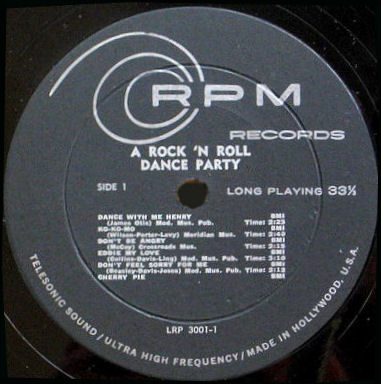 On to the RPM Label Discography
On to the RPM Label Discography 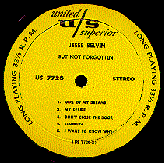 On to the United/Superior & United Label Discography
On to the United/Superior & United Label Discography
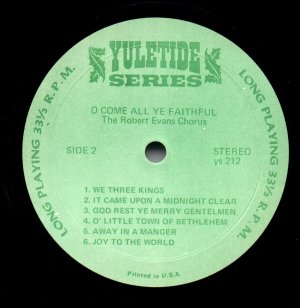 On to the Yuletide Label Discography
On to the Yuletide Label Discography  Back to the Discography Listings Page
Back to the Discography Listings Page  Back to the Both Sides Now Home Page
Back to the Both Sides Now Home Page